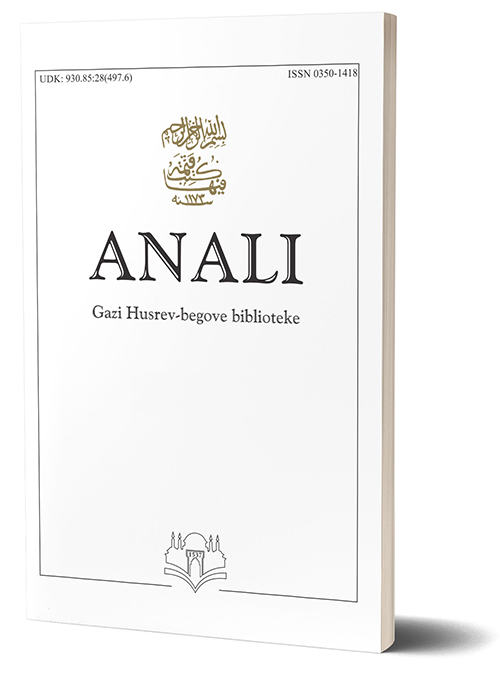SOME CHARACTERISTICS OF ULEMA MEDŽLIS FATWAS AND THEIR ROLE IN DETERMINING GENERAL POLICY OF THE HIGHEST ISLAMIC AUTHORITY IN BOSNIA AND HERZEGOVINA
SOME CHARACTERISTICS OF ULEMA MEDŽLIS FATWAS AND THEIR ROLE IN DETERMINING GENERAL POLICY OF THE HIGHEST ISLAMIC AUTHORITY IN BOSNIA AND HERZEGOVINA
Author(s): Ayşe Zişan FuratSubject(s): Law, Constitution, Jurisprudence
Published by: Gazi Husrev-begova biblioteka
Keywords: Ulema-medžlis; fatwa
Summary/Abstract: Fatwas as “written or oral opinions/answers issued by a religious scholar to a question concerning Islamic law” are one of the most important sources for understanding socio-cultural life and its changing dynamics since they contain information about two interrelated aspects of religious life: the problems facing Muslims and the decisions issued by the religious authorities corresponding to them. Whereas determining and evaluating the questions asked by Muslims enables us to familiarize ourselves with the real life situations in which Muslims were living, the answers provide details about the general policy of the fatwa giver, especially if it is the highest religious authority in a country as is the case in this paper. Moreover, the practice of issuing fatwas should be considered as one of the efficient instructive tools for preserving and creating a distinctive Islamic identity, by providing authoritative advice for those who are unfamiliar with the provisions of Islamic law or uncertain about the compatibility of their behaviour with Islamic rules. Therefore, fatwas should be taken into consideration not only as answers given to a particular religious question, but also as a living text which provides us with information about the role and the functions of religious authority as a moral leader in society. The main purpose of this paper is to give a general overview on the fatwas found in the primary resources of Ulema-Medžlis, namely Ulema-Medžlis Records and Protocols. The paper covers only the period from 1883 till the proclamation of Statute for the Autonomous Administration of Islamic Religious, Waqf and Educational Affairs in 1909. Since the statute granted Bosnian Muslims their religious autonomy, it also considered Mešihat as the authority for issuing the ultimate fatwa in cases when there was any uncertainty or lack of clarity about an issue. As is presented in the paper, working on fatwa texts in Ulema-Medžlis archives has much significance for two main reasons: firstly, for ascertaining the general situation of Muslims at that time; and secondly, for tracing the impacts of socio-cultural changes on Bosnian Muslims. From a more methodological perspective, it also allows researchers to compare the techniques or procedures of fatwa issuing in the Ottoman and Austro- Hungarian periods. The paper does not to evaluate fatwas from the point of view of Islamic law, but focuses primarily on the characteristics of fatwas and their use in shaping the Muslim community under Austro-Hungarian occupation. Therefore, after giving the general framework of the work, the inventory and the documents related to the fatwas are outlined. Secondly, structural features of fatwas in the Records and the Protocols as well as the fatwa issuing procedure are introduced. Finally the content of fatwas and their relevance along with the general policy of Ulema-Medžlis is evaluated.
Journal: Anali Gazi Husrev-begove biblioteke
- Issue Year: 2011
- Issue No: 32
- Page Range: 143-162
- Page Count: 20
- Language: English

